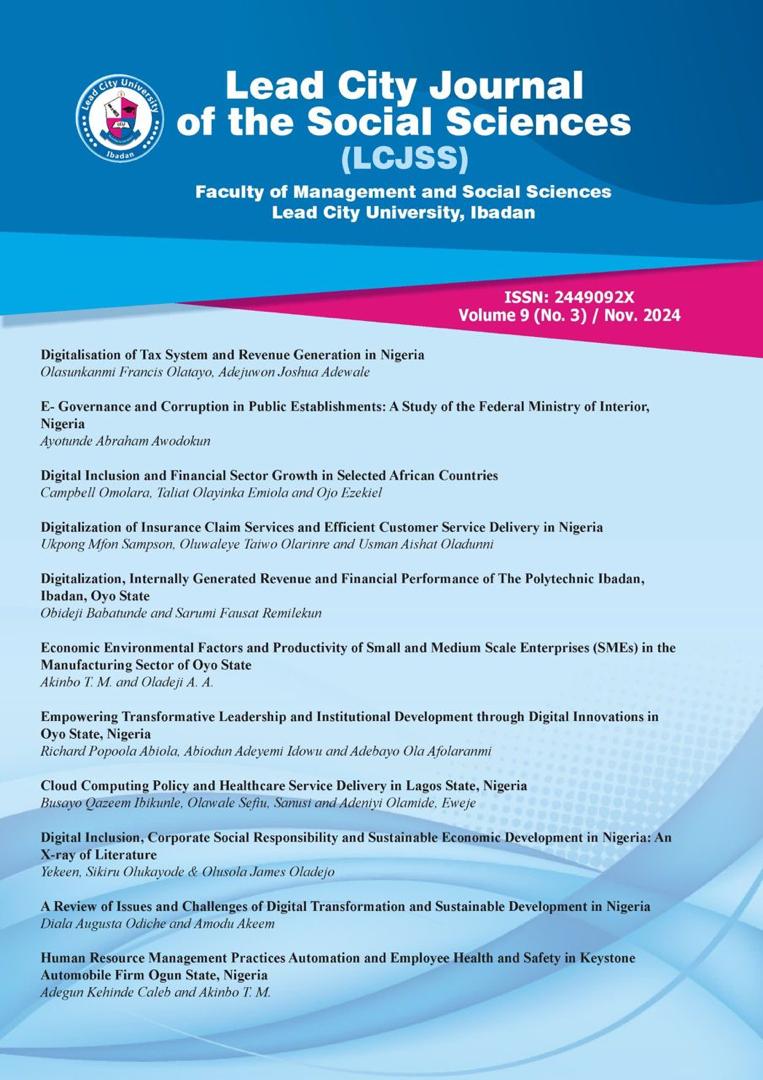E- Governance and Corruption in Public Establishments: A Study of the Federal Ministry of Interior, Nigeria
Keywords:
E-governance, corruption, bureaucracy, government.Abstract
From Nigeria’s independence to this present time, the Nigerian public service has been governed by a well-organized code of conduct. However, the public service continues to witness cases of corruption and unethical behaviour among its officials. Bureaucratic corruption remains a serious impediment to socio-economic and political development in Nigeria. It has deeply infiltrated the fabric of the Nigerian federation and is rendering vital organs or institutions of the country ineffective in-service delivery. The introduction of e-governance in public service brings possibilities for improvement as it strengthens governance through information technology. It is against this background that this paper examines e-governance as a way to ameliorate corruption in public establishments with special reference to the federal Ministry of Interior. The central aim is to come up with ideas that will promote quality service delivery and reduce the occurrence of corruption in the public service. The paper relied largely on the qualitative method of analysis, in which relevant historical evidences, books, journals and newspaper reports were content analyzed. The institutional theory forms the theoretical frame work of the study. The findings show that e-governance helps to improve the efficiency level of traditional bureaucratic systems. This is achieved through the use of information technology to streamline government processes, performance measurement and accountability mechanisms thus reducing the incidence of corrupt practices. The paper recommends a paradigm shift from bureaucratic processes of decision-making that involve physical interactions to e-interaction relying on e-technology. Importantly, the requisite infrastructural instruments for e-governance utility are imperative.

